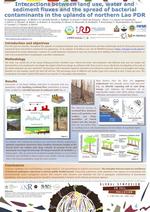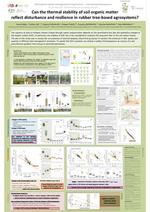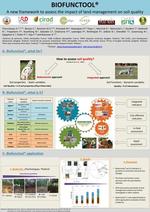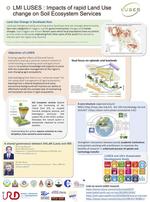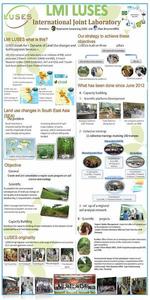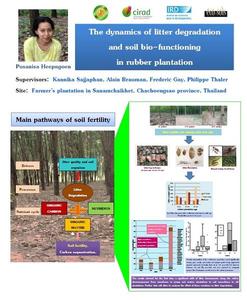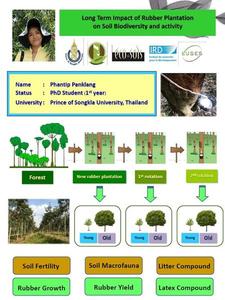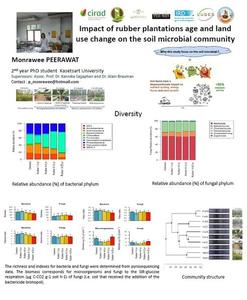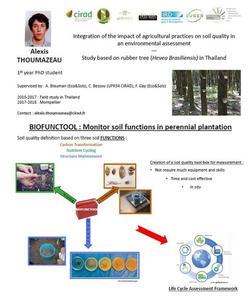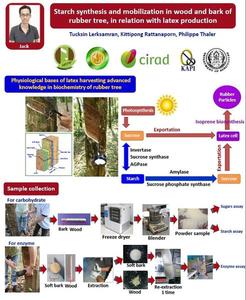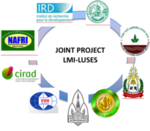Introduction to the characterization of soil nematodes, an important soil bio indicator
Date :8th - 12th July, 2013
Location: Khon Kaen University, Thailand
Agenda of training on "Nematodes" (click here to download)
Background
Soil organisms develop close relationships with their environment and can thus provide information about the general soil functioning because of their sensitiveness to the perturbations and stresses suffered by the soils (pollution, climatic variations, physical state of the soil, etc.). Because of their abundance (> 10 per g of soil), their presence in all types of soil and their sensitivity to soil water quality (they live in the film of water that surrounds soil particles), nematodes are considered as one of the best indicator of soil perturbations.
Objective
- Demonstrate the ecological importance of soil nematodes in soil functioning.
- Learn simple methodologies to assess soil nematode abundance (extraction of nematodes from the soil matrix) and discover nematode trophic diversity (morphological observation).
- Introduce the trainee to the new molecular technics of nematode identification.
- Build a scientific network on the assessment of soil quality index in the different agrosystems studied by PPR SELTAR and LMI RICE and LUSES
LMI LUSES Posters
Presentation of the ECOFILTER Team at the Global Symposium on Soil Pollution (GSOP18), FAO, Rome, 2-4 May 2018
Poster of the BIODIV TREE team presented at the SOM management conference held in Braunsweig on the 30 and 31 of May
Poster of the BIODIV TREE team presented at the SOM management conference held in Braunsweig on the 30 and 31 of May
Synopsis of LUSES 2017-2019
- LDD-IRD a long history of scientific cooperation
- Impact of Rubber Tree Plantation on Soil Biological Diversity
- LDD-LMI LUSES Platform of Microbiology
- LMI LUSES presentation
- PCR LDD-LMI LUSES Platform
- Laboratory guide: hygiene and safety in English
- Laboratory guide: hygiene and safety in Thai
PhDs students' scientific posters
The dynamics of litter degradation and Soil-bio functioning in Rubber plantation : Pusanisa Heepngoen
Long term impact of Rubber Plantation on Soil biodiversity and Activity: Phantip Panklang
Impact of Rubber Plantation age and Land use change on the soil microbial community : Monrawee
Integration of the impact of agricultural practices on soil quality in an environmental assessment : Alexis
Starch Synthesis and Mobilization in wood and bark of rubber tree, in relation with Latex production : Tuksin






